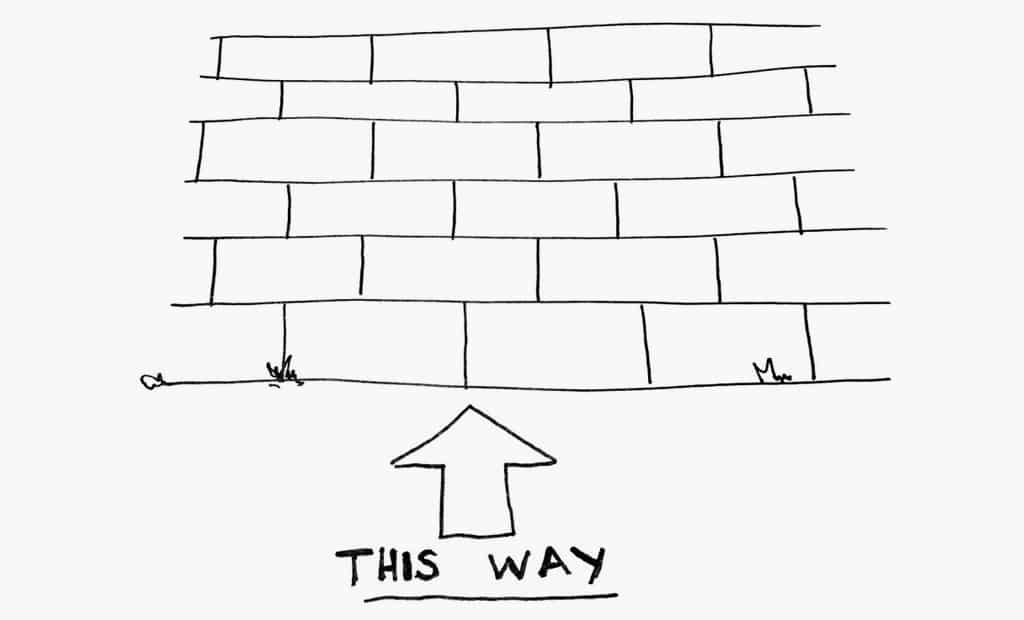She confidently spoke up and outlined the advice she regularly gave to her clients. Her tone suggested the topic we were discussing didn’t cause a moment of problem in her consultancy. Yet quickly I could see her advice was flawed. I could see it would never be effective. So I asked her “And do you use that strategy yourself?”
“Umm… no… not really. I guess I’ve never really found a good way to handle that problem.”
Then how can she get away with selling that advice? The answer, because people buy and believe what ‘sounds right’. They buy and believe clichés, rarely assessing if the advice is practical, viable, applicable, effective or even delusional.
“Just relax, look after you.” But not too much because “People die in bed.”
“Live in the moment” but be sure to “Set your goals”, “Make your dreams happen” and “Plan for your financial future.”
“Don’t ‘settle’ in your relationship, you’re better than that! You deserve someone awesome.” but maybe “You’re being too picky. Are your standards too high?”
“If you snooze, you lose.” But also “Think before you act.” Not too long though because “Snap, snap. Let’s get to it!”
“You need to get out there” to meet the love of your life, but also “Don’t put too much pressure on it. It will happens when you least expect it.”
“Be confident! Back yourself.” But “Don’t get ahead of yourself” because “Gee, got tickets on yourself haven’t you!”
“It’s ok to cry.” But “You shouldn’t be sad, there are people who have it worse than you!”
“Put it away for a rainy day.” But also “Screw it, you only live once!”
“Do what you love and the money will follow.” But “Be sure to find a niche in the market.”
“Visualise your dreams.” But “Don’t over think it.”
“Honesty is the best policy.” But “A little white lie never hurt anybody.”
“Think big!” But “Be realistic.”
And what is the result? We find ourselves in a constant state of internal dialogue and tension. Constantly measuring ourselves by comparing our behavior to the cliché wisdoms our community shouts loudly but doesn’t assess if it is a sustainable line of thinking. Thus we constantly worry “Am I living life right?”
What we really need are thoughts which help us navigate any situation, and feel good doing it. Rather than one-off clichés, we are looking for truths. Truths are as reliable as gravity, and thus become a way of thinking which help us in any situation.
Here are a series of truths which don’t make great clichés, but instead watch how beautifully they connect and act as a decision-making framework for any situation:
- Joy feels awesome.
- Joy, love and truth are all connected. Where you find one of these you will also find the others. Where one is absent, so are the others.
- In any situation, use actions or words of joy, love or truth and you will create all three.
I call thoughts which connect like this Truth Frameworks. They are little collections of the simplest ideas that, when understood and applied, always get you to a better place. They make life and decisions simpler.
You might also notice how all the clichés I listed earlier in this post now serve no purpose at all. They are just mental noise. They offer nothing that this Truth Framework doesn’t offer tenfold. Like all religious texts say, the truth sets you free.
When you have a collection of Truth Frameworks, you then have a way of thinking that lets you literally live more. These Truth Frameworks are how I make the impact I do for my clients. They exist in sport, business, family, life, money, everywhere. I will keep posting them for you but if you want to experience them in all their magnificence, hang out with me for a weekend and I will blow your mind.
Mark’s two day event: ‘Live More’ – Melbourne, 23 & 24 May 2015


